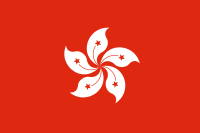Hong Kong Occupy Central’s US Backed Leaders: Entwined With US State Department-Funded Organizations

Over the past several days, there has been a certain backlash, even among Hong Kong’s “Occupy Central” supporters themselves against the now exposed, US-backed leadership of the movement. After denying, then unsuccessfully defending the fact that “Occupy Central” co-organizers including Benny Tai, Joshua Wong, Martin Lee, Anson Chan, Audrey Eu, Jimmy Lai, and Joseph Zen are all entwined with US State Department-funded organizations, movements, projects, and institutions, many “Occupy Central” supporters are now attempting to claim this leadership does not represent them, and that they remain in the streets for entirely different reasons.
They have no coherent demands, and no reasonable explanation as to how remaining in the streets will help meet these demands, and ultimately, their reasons for staying in the streets do no matter. For “Occupy Central’s US-backed leadership, it doesn’t matter why protesters are staying in the streets, just so long as they remain there. Benny Tai, in an interview with “Hong Wrong,” admits that “Occupy Central’s” decision to move into the streets is simply to make Hong Kong ungovernable until Beijing meets their demands – and their demands as even many previous supporters have come to realize, are dictated by the same foreign interests funding Benny Tai’s work.
Benny Tai would admit in the interview that “Occupy Central aimed at:
” causing some sort of disturbance to generate pressure on the government to accept the …our demands in case they refuse to accept the proposal we put forward.”
Benny Tai and the other leaders of “Occupy Central” see the well-intentioned protesters flooding the streets as either dupes who honestly believe their message, or “useful idiots” who see and now reject what is clearly foreign destabilization, but remain in the streets regardless to push for their own agenda. The true goal of “Occupy Central” is to create division and chaos across Chinese society, and for each and every protester who remains in the streets, they are contributing toward this goal whether they realize and admit it, or not.
Benny Tai’s Demands Echo Martin Lee & Anson Chan’s Delivered in Washington D.C.
In the same interview, Benny Tai would admit that:
So, and Hong Kong is a British Colony and, but it was part of China. So, the Chinese government and the British government agreed in this Sino-British negotiation, a joint declaration in 1984 that China will resume sovereignty over Hong Kong. And then China started the drafting of the Basic Law, that is our constitution after 1997. And in the constitution in one article, Article 45 is stated that the Chief Executive, the ultimate aim will be elected by universal suffrage.
Tai would continue:
But from what we see that the Chinese government seems to be talking about a kind of universal suffrage of Chinese characteristics. Not really the real universal suffrage. The kind of universal suffrage the Chinese government is talking about that is with Chinese characteristics that, you know, you can have the one person one vote. Everyone will have the right to vote, but to whom you will for? You can only vote or choose among a number of candidates that the Chinese government has approved, and then you can choose from the list of people that the Chinese government accepts. So, this is the kind of universal suffrage of Chinese characteristics.
This is verbatim the narrative presented by Martin Lee and Anson Chan as they sat before the US State Department’s National Endowment for Democracy (NED) in Washington D.C. earlier this year. Unfortunately, Benny Tai’s US-backing indicates that instead of Hong Kong enjoying universal suffrage with “Chinese characteristics,” they would be subjected to universal suffrage with “Wall Street characteristics,” and presumably politicians drawn from Benny Tai’s own US-backed “Occupy Central” movement. Instead of Beijing approved candidates, Hong Kong would get to choose from a myriad of Wall Street and Washington approved candidates – though not done by an official nomination committee, but rather through an already well-defined, documented network of foreign funding and political and mass media manipulation.
Nothing about Benny Tai’s agenda is worth disrupting the lives of the ordinary citizens of Hong Kong over. What he is proposing is not the elimination of interference in Hong Kong’s politics, simply the invitation of manipulation from further abroad – particularly from Wall Street and Washington.
With this in mind, those remaining in the streets of Hong Kong – if this is not the cause they support – should consider alternatives to street demonstrations. The relationships and experiences forged even by accidentally being drawn into an insidious foreign plot, can be used to create pragmatic and progressive working groups that work toward improving community life through technology, innovation, education, and tangible, constructive projects to improve infrastructure and the quality of daily life – things utterly absent from “Occupy Central’s” current agenda as stated by leaders like Benny Tai and Martin Lee themselves.

